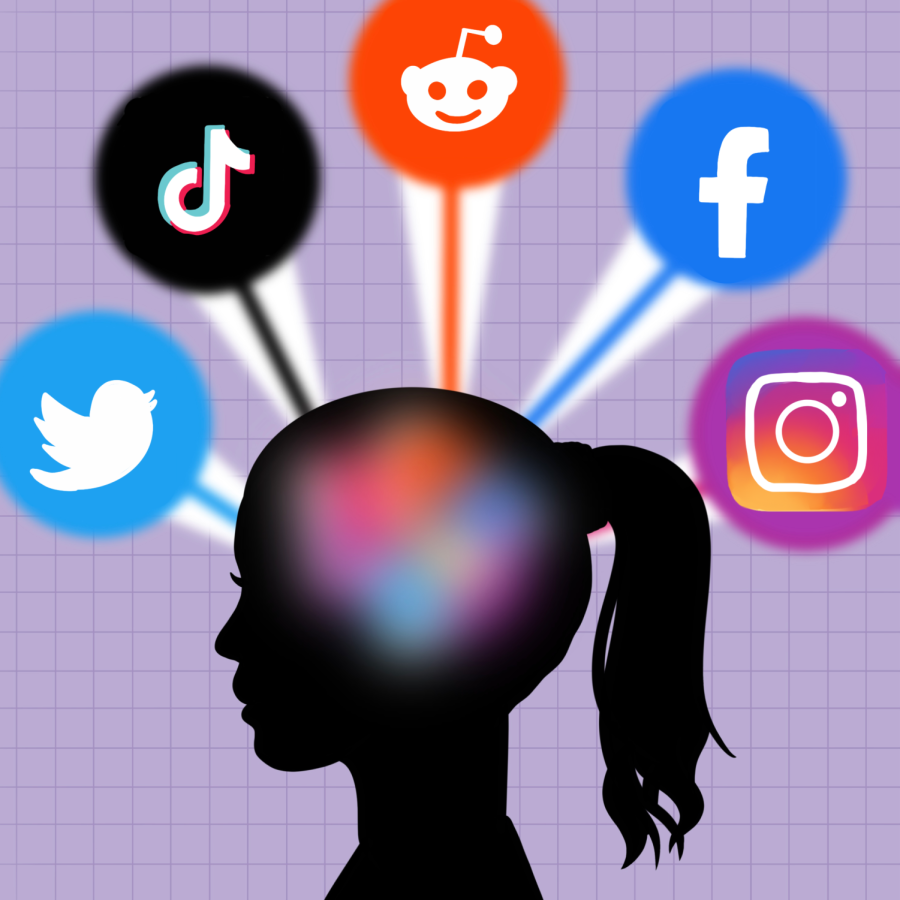The age of misinformation
April 26, 2022
You would think that with the modern media’s remarkable ability to spread information and multimedia like wildfire, society would be more informed. Right?
While this may be true in some ways, access to more information does not always translate to being more informed. This is due to the tendency of the human brain to take mental shortcuts when interpreting new and unexpected information to minimize the time required to come to a conclusion. Originally these shortcuts served us well — our autonomic nervous system has evolved over time to protect us from the danger we may not even know is there. Today, these shortcuts seem to do more harm than good. Interestingly enough, the cognitive processes that kept human beings alive for millions of years are the same cognitive processes that prevent us from properly examining our own behavior in the modern world.
Information overload, or cognitive overload, occurs when the amount of input into the system exceeds its cognitive processing capabilities. In today’s digital age, nearly everyone with internet access has the ability to create and share content online, and most social media sites do very little to combat the spread of misinformation. In the face of information overload, the brain unconsciously sorts and prioritizes the information at hand. Many times, we resort to using our cognitive biases to alleviate some of the pressure experienced when making decisions regarding the information and media that we consume. While this can be beneficial for quickly sifting through large amounts of information or trying to escape a potential threat, it can hinder our ability to think critically about the information we take in regarding a situation or person.
When immediately confronted with pieces of information regarding a particular scenario, your brain fills in the blanks, creating mental images that are familiar and comfortable based on what unconscious thoughts are most available to you, regardless of what you actually know to be true. The assumptions made by the unconscious mind are called biases, and they play a major role in our consumption and evaluation of information and media on the internet.
When we process information according to our cognitive biases, we use our existing knowledge as a basis for comparison. Selective perception occurs when we interpret the information at hand according to its context and frame of reference. Stimuli that are more likely to cause discomfort or disrupt our current belief system are more likely to be ignored. As a result, the connections and inferences drawn according to selective perception are typically flawed and self-perpetuating. One of the most widely known biases is confirmation bias, which explains the tendency to seek information that confirms our existing beliefs and attitudes toward a particular topic. The confirmation bias is extremely dangerous. Despite having centuries of literature, research and other types of media at our fingertips, we are unlikely to actively seek out information that contradicts our opinions and values.
Among other types of biases perpetuated online, the anchoring bias, availability heuristic bias and ostrich bias are some of the most common. The anchoring bias occurs when the first time that we are exposed to something dictates the way that we interpret it during future encounters. For example, if the first piece of media that we see regarding a political candidate paints them in a negative light, it may be difficult for us to shake this initial impression the next time we see the same candidate. Similarly, the availability heuristic bias correlates the amount of exposure to a particular type of media and the way that we prioritize that information in relation to other media we may consume. Furthermore, when something contradicts our current beliefs, we tend to brush it off as an exception; this is known as the ostrich bias.
Our cognitive biases play a significant role in the way that we seek out and interpret information online — but that does not mean we have to stay in the dark forever. By learning to expect the unexpected and repeatedly training our brain to not function according to biases and selective perception, we can set an active intention to counter the spread of misinformation online. Make a conscious effort to expose yourself to things that are unnecessarily unfamiliar to you, and you will find that there is much more of the world to explore.







